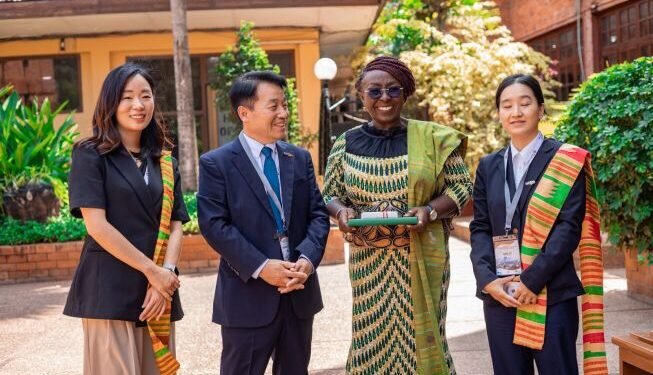As Ghana’s economy braces for the final stretch of 2025, the local currency—the Ghana cedi—is expected to close the year at GH¢11.45 per US dollar on the interbank market, according to projections by IC Research, a leading economic analysis firm.
This projection raises fresh concerns about the effectiveness of the Bank of Ghana’s (BoG) interventions in stabilizing the currency amid external pressures and policy adjustments recommended by the International Monetary Fund (IMF).
In its latest macroeconomic update, IC Research revealed that while it expects the interbank US dollar to Ghana cedi rate to remain below the firm’s estimated fair value, the cedi is still forecasted to weaken to GH¢11.45/USD by December 2025. The current interbank rate hovers around GH¢10.40/USD, but market dynamics and central bank actions are expected to drive a gradual convergence towards this forecast ceiling.
The firm also cited a midpoint forecast of GH¢10.95/USD, reflecting an upward trajectory as the year unfolds. According to IC Research, “We reiterate the possibility for the interbank levels to steadily rise towards our revised FY2025 midpoint forecast of GH¢10.95/USD with the forecast ceiling at GH¢11.45/USD.”
A Growing Gap Between Interbank and Retail Market Rates
While the interbank market reflects controlled trading rates, retail forex markets paint a more troubling picture, with the dollar selling at over GH¢12 to the cedi. IC Research pointed out that this divergence indicates that retail traders and the broader market are already pricing in higher depreciation, bringing rates closer to what it described as the “fair value” of GH¢12.20/USD.
“This appears to have created a significant divergence between the interbank rate at GH¢10.35/USD and retail market levels above GH¢12.0/USD,” the report noted. This gap underscores the pressures faced by ordinary Ghanaians and businesses who rely on forex purchases in the open market.
IMF Raises Red Flags Over BoG’s Forex Strategy
A significant factor fueling market anxiety is the continued intervention of the Bank of Ghana in the forex market. IC Research estimates that as of July 7, 2025, the central bank had sold US$4.6 billion in forex through the interbank market. This heavy intervention, while aimed at stabilizing the cedi and curbing inflation, has caught the attention of the IMF, which has warned against sustained market manipulation.
Although the IMF has commended the BoG’s efforts to maintain macroeconomic stability, it has also called for reduced forex market interventions and greater flexibility in the exchange rate regime. The Fund has urged the BoG to adopt a more structured internal forex intervention framework to allow market forces to play a stronger role.
In response to IMF recommendations, the BoG recently adjusted its forex delivery tenor from 2-day Forwards to 7-day Forwards, a move analysts say is in line with aligning policy tools to reduce short-term volatility and curb aggressive speculation. The Bank has also been actively accumulating forex reserves through its domestic gold purchase programme, which appears to be a double-edged sword—strengthening reserves while trying to support the cedi artificially.
“Our estimate showed year-to-date FX sales of US$4.6 billion on the interbank market by the BoG, while concurrently accumulating FX reserves, through a strategic tweak to the domestic gold purchase programme.”
IC Research
As Ghana continues to navigate economic recovery under the IMF programme, IC Research’s forecast of a GH¢11.45/USD interbank rate by year-end signals growing skepticism about the sustainability of the current forex management approach.
If the retail and interbank markets continue to diverge, and public confidence in the cedi erodes further, Ghana could see renewed inflationary pressure and volatility. The cedi’s performance for the remainder of 2025 will largely depend on the BoG’s willingness to embrace exchange rate flexibility, external inflows, and how global commodity prices—particularly gold and cocoa—trend in the final months of the year.
READ ALSO: GEPA Trains Palm Oil Producers in Agona Nkwanta to Meet Global Standards























